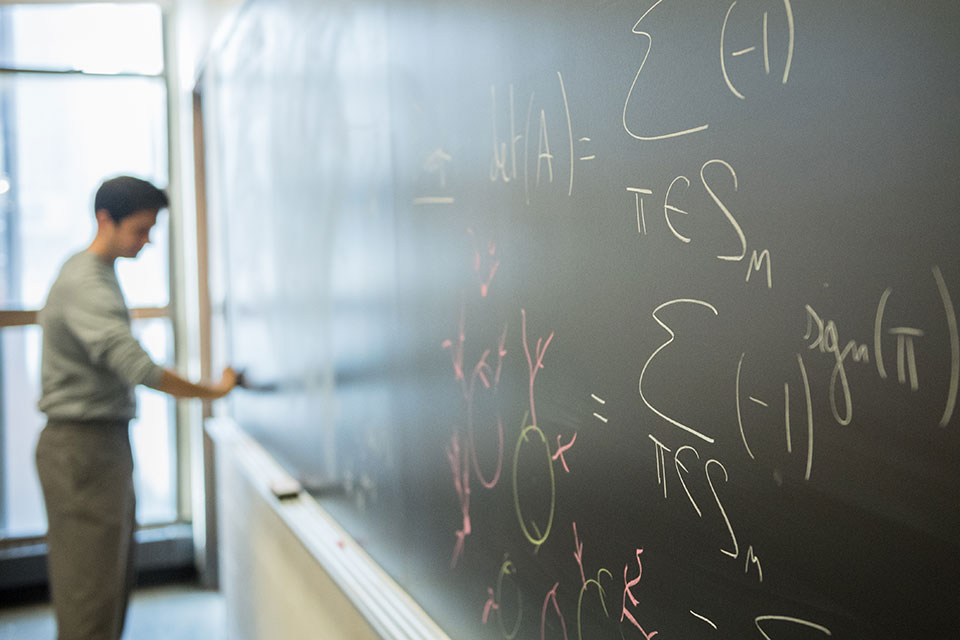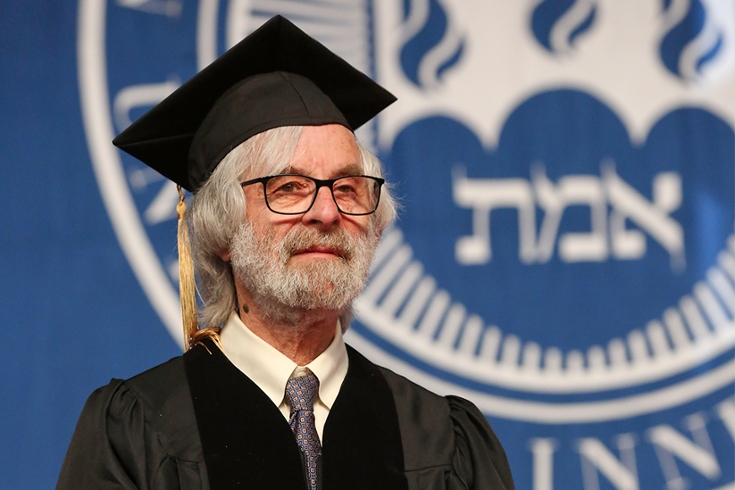Master's in Mathematics

Master of Arts and Master of Science in Mathematics
Our Master of Arts and Master of Science in Mathematics degree programs are for students with a strong undergraduate background in mathematics. We offer both a Master of Arts degree, which typically takes one year to complete, and a Master of Science degree, which typically takes 2 years to complete.
Our Master’s programs are well suited for students planning to apply to competitive PhD programs. Both Master’s offer a comprehensive list of graduate courses. The Master of Science adds several advanced classes and a research component.
Neither degree offers nor requires teaching assistantships, but financial aid may be available.
Our department also offers a combined BA/MA degree in mathematics, as well as a post-baccalaureate program for students with bachelor's degrees in any field who would like to expand or deepen their mathematical skills for use in the workplace or in preparation for graduate programs in mathematics or a life or social science.
Why Brandeis?
Our faculty's accomplishments have placed our department among the top in the country. Our faculty are not only outstanding academics, they are also dedicated teachers and mentors. Especially in advanced-level courses, you'll often find them in the audience while a student lectures. By fostering dialogue among all members of the department, we aim to bring mathematics to life.
Just beyond Brandeis, you'll find an extended mathematical community of great diversity and depth. In addition to attending lectures, seminars and colloquia, you'll have many opportunities to connect with mathematicians at Boston College, Boston University, Harvard, MIT and Northeastern, to name a few.
Careers and Alumni
A Brandeis master's degree in mathematics will give you a solid preparation for doctoral studies; many of our graduates go on to study in the most prestigious PhD programs, including right here at Brandeis.
- Karen Keskulla Uhlenbeck MA'66, PhD'68 is the distinguished recipient of the Abel Prize in Mathematics (2019), MacArthur Prize Fellowship (1983), Noether Lecture (1988), National Medal of Science for Mathematics and Computer Science (2000), the Guggenheim Fellowship for Natural Sciences, US & Canada (2001), and the American Mathematical Society's Leroy P Steele Prize (2007).
Curriculum
Both Master’s degrees require the same core courses in analysis, algebra and topology as well as a math seminar course, which enriches our students’ experience by encouraging them to attend various seminar series. The requirements in the Brandeis Bulletin for the Master of Arts are currently being revised for fall 2021 to include six core courses, one seminar course and four additional credits, which can be two more seminars or a graduate level math course (or other elective that is approved). The Master of Science requires additional coursework and includes the option of completing a thesis with the approval of the faculty.Financial Aid and Scholarship
Most of our master's degree students receive partial scholarship support that is based on a combination of need and academic merit.
Alumni Spotlight

Leslie Lamport, MA’63, PhD’72, H’17, received the 2013 Turing Award, viewed as the Nobel Prize for computer science. His Paxos algorithm has made it possible for millions of computers to connect and communicate with one another. Today, critical computer systems at Microsoft, Google and Amazon all depend on the Paxos algorithm, a series of mathematical instructions derived by Lamport. Internet pioneer Robert Taylor put it bluntly: "You like using the Internet, you owe Leslie."